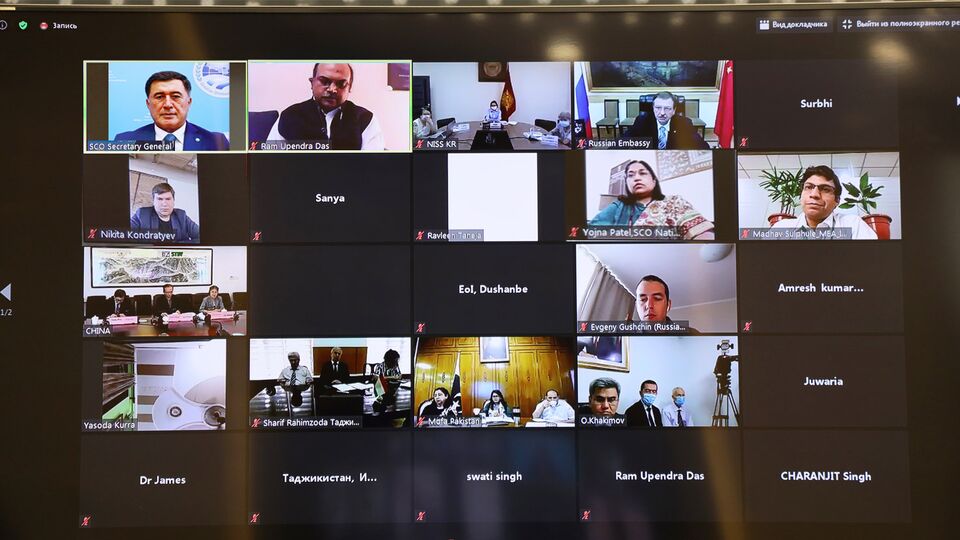On 20-21 August 2020, the SCO Consortium of Economic Analytical Centres held its first meeting. Chaired by the Centre for Regional Trade of the Indian Ministry of Commerce and Industry, the meeting took place via video conference and was attended by representatives of economic research and analytical institutions of SCO member states.
SCO Secretary-General Vladimir Norov congratulated the participants on the start of practical work, noting the SCO leaders' focus on their activities as a new growing cooperation vector in scientific research.
"The research community's importance and role is growing exponentially as the fight proceeds against the COVID-19 pandemic and SCO member states look for ways to overcome its negative consequences and restore their economies.
"The SCO today is a huge consumer market with rich natural resources and advanced production capacities and technologies. The SCO member states' total trade with foreign countries amounted to over $6.3 trillion n 2019, while trade between SCO members themselves does not exceed 5%. In this connection, it is important to energise the development of direct ties between these countries in trade, the economy, investment, industry and agriculture, power production, road construction and transportation, the information and communications infrastructure, as well as cultural and humanitarian cooperaton," Secretary-General Norov said.
In keeping with the Consortium Regulations, the participants began to draft an Action Plan for 2020-2021. Vladimir Norov noted the importance of implementing large-scale joint research programmes envisaging a comprehensive analysis of factors influencing economic collaboration within the SCO, with account taken of global and regional processes, elaboration of joint responses to emergencies, including virus pandemics, and the development of digital economy and modern communications.
"All of these and many other goals are closely linked with the SCO's fundamental documents, such as the SCO Development Strategy for the Period until 2025 and the revamped SCO Programme of Multilateral Trade and Economic Cooperation. In the longer term, we expect recommendations on the SCO devising shared rules and standards on trade and investment, alignment of phytosanitary norms and requirements regarding agricultural products, and promotion of the services industry and e-commerce. I am confident that in future your recommendations could form the basis of crucial decision-making by the leaders of our countries.
"Quite soon, the Russian side will chair the next SCO summit in St Petersburg; in autumn, India will host a meeting of the heads of state for the first time. The participants will formulate the SCO's programme of action in the area of politics and security, as well as trade, economic, cultural and humanitarian collaboration for a new period.
"In this context, we welcome the Indian side's initiatives to promote new, promising projects in areas such as trade, alternative energy, transport, the establishment of multi-mode logistical centres, high-level information and communications technologies, traditional medicine, and youth startups, as well as the development of business and banking contacts," Mr Norov said.
He called for a strengthening of the cooperation between scientific analytical communities and wished the participants fruitful work, new joint ideas and innovative solutions.
The participants were also addressed by Deputy Minister of Commerce and Industry of India Anup Wadhawan and Prof. Upendra Das, Head of the Centre for Regional Trade of the Ministry of Commerce and Industry.
During the meeting, the participants shared views on opportunities for expanding trade and economic cooperation, research priorities, and terms of research under the Consortium's draft Delhi Plan of Action presented by India.
The SCO Consortium of Economic Analytical Centres is a multilateral consultative and expert venue created to facilitate trade and economic cooperation, establish collaboration between research institutions and analytical centres specialising in economic matters, and conduct analysis of economic collaboration priorities within the SCO.
The Consortium Regulations were approved by the SCO Council of Heads of State (Prime Ministers) in Tashkent in November 2019.
